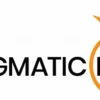As the country awaits the results of a parliamentary inquiry that might release policy recommendations this week, anti-gambling groups and public health experts in Australia are piling more pressure. This time, the groups are encouraging the government to take this “once-in-a-generation” opportunity to crack down on runaway gambling advertising.
Australian Government Urged to Seize Unique Opportunity to Ban Gambling Ads
Last update: May, 2024

The leader of the parliamentary inquiry committee, Labor MP Peta Murphy, has already provided compelling evidence of community harm caused by gambling adverts. Most people anticipate that the looming recommendations will suggest additional limits on betting commercials often played during live sporting events.
Interestingly, both political parties in the country have endorsed limiting gambling ads. The prime minister, Anthony Albanese, has previously voiced his personal disapproval of the advertisements, whilst the opposition leader, Peter Dutton, used his budget reply address to call for further reforms.
Initial studies have revealed that gambling adverts are the reason behind kids identifying gambling brands by their colours. However, the awaited recommendations will likely face resistance from a section of industry stakeholders who have warned of reduced grassroots sports support or free sports coverage.
Since the launch of investigations a few days before the 2022 AFL finals game, community opposition to the gambling commercials has intensified. A survey of 3,000 AFL supporters revealed that most fans favoured a complete ban. But a blanket ban on these adverts is unlikely to materialize despite support from MPs on both political divides.
Tim Costello, a well-known anti-gambling crusader, recently commented, “Just as it is unacceptable for children to know the brands Peter Stuyvesant and Marlboro cigarettes, why should they know Sportsbet or Bet365? It is a terrible policy failure and Australia has per capita 20% higher online losses than others because of the tsunami of sports betting advertising.”
Samantha Thomas, a researcher at Deakin University who studies gambling and health, echoed Costello’s sentiments. She asked the government to treat gambling and betting as a public health problem and expand the health department’s duties.
Samantha Thomas added, “Anything less than a comprehensive ban on all forms of marketing will leave us with measures that still give the gambling industry scope to expose young people to its promotions. Just like we did with tobacco, we must ensure that gambling harm prevention policies are protected from the vested interests of the gambling industry and those who profit from it.”
Some betting companies have already accepted the inevitable. A good example is Tabcorp, one of the leading online bookmakers in the country. The company has vowed to scale down on its online adverts even if the parliamentary inquiry does not recommend tighter regulations.
According to most anti-gambling campaigners, limiting betting adverts is one of the most straightforward reforms available to the government. Most expect that the reforms will suggest the establishment of a national internet gambling regulator with greater resources and authority than regional bodies.






















